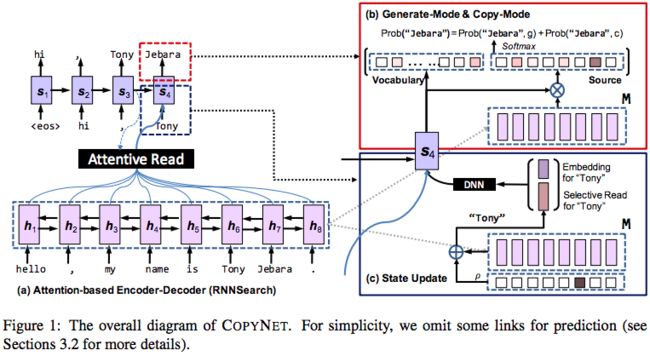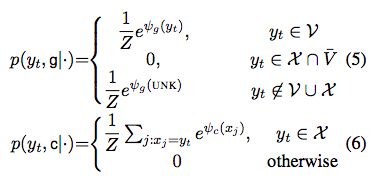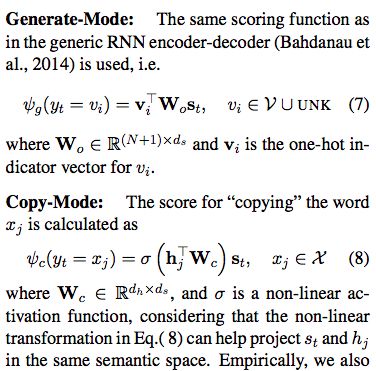- 沙箱机制(Sandbox Mechanism)
IT 青年
0o网安
前言沙箱机制(SandboxMechanism)是一种安全隔离技术,通过创建一个受限制的执行环境,将潜在不安全的程序、代码或数据与系统核心部分隔离,防止其对系统或用户数据造成破坏。一、核心原理资源限制:分配独立的内存空间、文件系统、网络接口等资源。限制CPU、内存、磁盘I/O等资源的使用量,防止恶意程序占用过多资源。权限控制:剥夺沙箱内程序的敏感权限(如访问系统文件、注册表、摄像头等)。通过访问控
- 强化学习之 DQN、Double DQN、PPO
JNU freshman
强化学习强化学习
文章目录通俗理解DQNDoubleDQNPPO结合公式理解通俗理解DQN一个简单的比喻和分步解释来理解DQN(DeepQ-Network,深度Q网络),就像教小朋友学打游戏一样:先理解基础概念:Q学习(Q-Learning)想象你在教一只小狗玩电子游戏(比如打砖块)。小狗每做一个动作(比如“向左移动”或“发射球”),游戏会给出一个奖励(比如得分增加)或惩罚(比如球掉了)。小狗的目标是通过不断尝试,
- 使用Python进行机器学习入门指南
软考和人工智能学堂
Python开发经验python机器学习开发语言
使用Python进行机器学习入门指南机器学习(MachineLearning)是人工智能(ArtificialIntelligence,AI)的一个重要分支,旨在通过算法和统计模型,使计算机系统能够自动从数据中学习和改进。Python作为机器学习领域的主流编程语言,提供了丰富的库和工具来实现各种机器学习任务。本文将介绍如何使用Python进行机器学习,包括基本概念、常用库以及一个实战项目示例。目录
- 少样本图学习(few-shot learning on graph)知识背景
so.far_away
网络空间安全学习机器学习人工智能
Few-ShotLearningonGraph少样本学习简介少样本图学习简介1.SupportSet和QuerySet(针对单个任务)(1)SupportSet(支持集)(2)QuerySet(查询集)2.BaseData和NovelData(针对整个数据集)(1)BaseData/Classes(基类数据)(2)NovelData/Classes(新类数据)少样本学习简介少样本学习(FSL)旨在
- Building Apps with AI Tools: ChatGPT, Semantic Kernel, and Langchain 项目推荐
滕娴殉
BuildingAppswithAITools:ChatGPT,SemanticKernel,andLangchain项目推荐building-apps-with-ai-tools-chatgpt-semantic-kernel-langchain-4469616ThisisacoderepositoryfortheLinkedInLearningcourseBuildingAppswithAIT
- 量子机器学习入门:从理论到实践
量子机器学习入门:从理论基石到实践路径元数据框架标题量子机器学习入门:从理论基石到实践路径——连接量子计算与人工智能的未来桥梁关键词量子计算;机器学习;量子算法;量子神经网络;Qiskit;PennyLane;量子变分算法摘要量子机器学习(QuantumMachineLearning,QML)是量子计算与机器学习的交叉领域,通过量子计算的叠加态、纠缠和并行性解决传统机器学习的计算瓶颈(如高维数据处
- 量子计算突破:8比特扩散模型实现指数级加速
晨曦543210
人工智能
目录一、量子扩散模型(QuantumDiffusion)二、DNA存储生成(Biological-GAN)三、光子计算加速四、神经形态生成五、引力场渲染六、分子级生成七、星际生成网络八、元生成系统极限挑战方向一、量子扩散模型(QuantumDiffusion)量子线路模拟经典扩散过程fromqiskitimportQuantumCircuitfromqiskit_machine_learning.
- 大模型的“涌现能力“:现象、表现与成因解析
北辰alk
AI深度学习人工智能
文章目录一、涌现能力的本质与特征1.1基本定义1.2识别标准二、三种典型涌现能力表现2.1少样本上下文学习(Few-shotIn-contextLearning)表现特征实证数据可能成因2.2思维链推理(Chain-of-ThoughtReasoning)表现特征典型案例可能成因2.3指令跟随(InstructionFollowing)表现特征能力对比可能成因三、涌现能力的理论解释3.1相变理论视
- ER综述论文阅读-Emotion recognition in EEG signals using deep learning methods: A review
今天早睡了
情绪识别EmotionRecognition论文阅读深度学习人工智能
EmotionrecognitioninEEGsignalsusingdeeplearningmethods:AreviewQ1期刊,2023论文链接:https://d1wqtxts1xzle7.cloudfront.net/105887899/emotionreview-libre.pdf?1695460941=&response-content-disposition=inline%3B+f
- 【论文阅读笔记】TimesURL: Self-supervised Contrastive Learning for Universal Time Series
少写代码少看论文多多睡觉
#论文阅读笔记论文阅读笔记
TimesURL:Self-supervisedContrastiveLearningforUniversalTimeSeriesRepresentationLearning摘要 学习适用于多种下游任务的通用时间序列表示,并指出这在实际应用中具有挑战性但也是有价值的。最近,研究人员尝试借鉴自监督对比学习(SSCL)在计算机视觉(CV)和自然语言处理(NLP)中的成功经验,以解决时间序列表示的问题。
- 【论文阅读】Transfer Learning for Automatic Modulation Recognition Using a Few Modulated Signal Samples
摘要:这封信提出了一种用于自动调制识别(AMR)的迁移学习模型,该模型仅具有少量调制信号样本。传输模型以音频信号UrbanSound8K作为源域进行训练,然后以一些调制信号样本为目标域进行微调。为了提高分类性能,信噪比(SNR)被用作一个功能来促进信号的分类。仿真结果表明,迁移模型在分类精度方面具有显著优势。这篇文章的核心内容是提出了一种基于迁移学习(TransferLearning)的自动调制识
- 【论文阅读】Meta-SE: A Meta-Learning Framework for Few-Shot Speech Enhancement
Bosenya12
论文阅读
这篇文章介绍了一个名为Meta-SE的元学习框架,专门用于少样本(few-shot)语音增强问题。文章的核心目标是解决在实际应用中,由于训练样本有限而导致传统深度神经网络(DNN)模型性能受限的问题。Meta-SE通过元学习的方法,利用先验的元知识快速适应新的任务和噪声类型,即使只有少量训练样本也能表现出色。背景知识与研究动机语音增强技术旨在从带噪语音信号中恢复目标语音,提升语音质量和可懂度。深度
- 【论文阅读】SASLN:小样本条件下机械故障诊断的信号增强自学习网络
SASLN:SignalsAugmentedSelf-TaughtLearningNetworksforMechanicalFaultDiagnosisUnderSmallSampleCondition本文介绍了一种名为SASLN(SignalsAugmentedSelf-TaughtLearningNetworks)的方法,专门用于在小样本条件下对风力发电机(WT)的发电机轴承故障进行诊断。该方
- 【论文阅读】SSCL-AMC: 一种基于动态增强和集成学习的自监督自动调制分类方法
SSCL-AMC:ASelf-supervisedAutomaticModulationClassificationMethodviaDynamicAugmentationandEnsembleLearning摘要:与传统的手工自动调制分类(AMC)方法相比,深度学习已经显示出有希望的结果,AMC作为信号检测和调制之间的中间步骤发挥着关键作用。然而,获取大规模标记数据仍然具有挑战性,因为数据质量和
- EgoAlpha/prompt-in-context-learning项目解析:Prompt Engineering核心技术指南
霍日江Eagle-Eyed
EgoAlpha/prompt-in-context-learning项目解析:PromptEngineering核心技术指南prompt-in-context-learningAwesomeresourcesforin-contextlearningandpromptengineering:MasteryoftheLLMssuchasChatGPT,GPT-3,andFlanT5,withup-
- VIT视觉
妄想成为master
opencv目标检测机器学习数据挖掘语音识别人工智能计算机视觉
VisionTransformer视觉和语言(Vision-Language)NLPrompt:Noise-LabelPromptLearningforVision-LanguageModelsPaper:https://arxiv.org/abs/2412.01256Code:GitHub-qunovo/NLPromptPhysVLM:EnablingVisualLanguageModelsto
- C#实现SVM支持向量机(附完整源码)
源代码大师
C#实战教程c#支持向量机开发语言
C#实现SVM支持向量机下面是使用C#实现支持向量机(SVM)的示例代码:usingSystem;usingAccord.MachineLearning.VectorMachines;usingAccord.MachineLearning.VectorMachines.Learning;usingAccord
- MATLAB随机模拟技术在气候模型中的应用
本文还有配套的精品资源,点击获取简介:MATLAB是科学研究和工程领域中广泛使用的一款数学计算与编程软件,尤其在气象学和气候模拟方面有着重要的应用。’Fletcher_2019_Learning_Climate’项目通过MATLAB实现的随机模拟方法帮助理解气候变化。本文将详细探讨该项目的关键内容,包括气候模型的构成、随机过程与统计方法的运用、MATLAB编程技能、气候数据处理与分析、结果可视化以
- 深度学习基础与应用:从理论到实战
创新工场
本文还有配套的精品资源,点击获取简介:深度学习是人工智能的核心分支,通过模拟人脑神经网络处理大量数据以执行复杂任务。Python因其简洁性和强大的库支持成为深度学习研究的首选语言。本文概述了深度学习基础概念、核心算法、Python框架,并假设了一个包含教程、示例代码、数据集、交互式学习环境、性能评估指标和进阶主题的“deep-learning-study-main”压缩包内容,旨在帮助学习者深入理
- 深度学习之迁移学习
路溪非溪
人工智能迁移学习机器学习
认识迁移学习迁移学习(TransferLearning)是机器学习中的一种重要技术,其核心思想是将在一个任务上学习到的知识(模型参数、特征表示等),迁移应用到另一个相关但不同的任务中,从而提升新任务的学习效率和性能,尤其是在新任务数据有限的情况下。一、迁移学习的核心动机传统机器学习通常要求为每个新任务收集大量标注数据并从头训练模型,但现实中面临以下挑战:数据稀缺:例如医疗影像分析(罕见疾病样本少)
- 四六级,雅思必备连接词(持续更新~)
dulu~dulu
自用笔记雅思英语雅思雅思词汇总结笔记雅思阅读雅思写作四六级写作
目录(一)观点对立(二)递进(三)因果(四)假设(五)总结(六)举例(七)优缺点承接说明(八)其他简单连接词1.并列关系2.顺序关系3.强调关系4.条件关系5.时间关系6.总结关系(一)观点对立1.Conversely:相反地Someviewtechnologyasadistraction.Conversely,othersseeitasapowerfullearningtool.有人视科技为干扰
- 用Python实现数据可视化的实用指南
庞队千Virginia
用Python实现数据可视化的实用指南practical-python-data-viz-guideResourcesforteaching&learningpracticaldatavisualizationwithpython.项目地址:https://gitcode.com/gh_mirrors/pr/practical-python-data-viz-guide项目介绍在数据驱动的时代,数
- 【零基础学AI】第33讲:强化学习基础 - 游戏AI智能体
1989
0基础学AI人工智能游戏transformer分类深度学习神经网络
本节课你将学到理解强化学习的基本概念和框架掌握Q-learning算法原理使用Python实现贪吃蛇游戏AI训练能够自主玩游戏的智能体开始之前环境要求Python3.8+PyTorch2.0+Gymnasium(原OpenAIGym)NumPyMatplotlib推荐使用JupyterNotebook进行实验前置知识Python基础编程(第1-8讲)基本数学概念(函数、导数)神经网络基础(第23讲
- 【AI论文】Skywork-Reward-V2:通过人机协同实现偏好数据整理的规模化扩展
摘要:尽管奖励模型(RewardModels,RMs)在基于人类反馈的强化学习(ReinforcementLearningfromHumanFeedback,RLHF)中发挥着关键作用,但当前最先进的开源奖励模型在大多数现有评估基准上表现欠佳,无法捕捉人类复杂且微妙的偏好谱系。即便采用先进训练技术的方法也未能显著提升性能。我们推测,这种脆弱性主要源于偏好数据集的局限性——这些数据集往往范围狭窄、标
- 03 数据可视化的世界非常广阔,除了已提到的类型,还有许多更细分或前沿的可视化形式。
晨曦543210
信息可视化人工智能
十五、机器学习与数据科学专用图表特征重要性图(FeatureImportancePlot)用途:展示机器学习模型中各特征对预测结果的贡献度。示例:随机森林模型中影响房价预测的关键因素。混淆矩阵热力图(ConfusionMatrixHeatmap)用途:分类模型性能评估,显示预测结果与真实标签的对比。示例:疾病诊断模型的真阳性/假阳性分布。学习曲线(LearningCurve)用途:分析模型训练过程
- Prompt相关论文阅读(02)--Auto-CoT(2024-11-25)
zhilanguifang
论文promptengineering论文阅读笔记
论文阅读笔记2024-11-24~2024-11-25Auto-CoT:AutomaticChainofThoughtPromptinginLargeLanguageModels(ICLR2023)碎碎念:复现代码和笔记保存到gitee仓库上海交通大学的学生在亚马逊实习的时候的成果ICLR2023摘要:LLM能够通过生成中间推理步骤执行复杂的推理。提供这些步骤用于提示演示叫做思维链提示CoT。Co
- 多智能体深度强化学习:一项综述 Multi-agent deep reinforcement learning: a survey
资源存储库
笔记
Abstract抽象Theadvancesinreinforcementlearninghaverecordedsublimesuccessinvariousdomains.Althoughthemulti-agentdomainhasbeenovershadowedbyitssingle-agentcounterpartduringthisprogress,multi-agentreinforc
- ReAct (Reason and Act) OR 强化学习(Reinforcement Learning, RL)
SugarPPig
人工智能人工智能
这个问题触及了现代AI智能体(Agent)构建的两种核心思想。简单来说,ReAct是一种“调用专家”的模式,而强化学习(RL)是一种“从零试错”的模式。为了让你更清晰地理解,我们从一个生动的比喻开始,然后进行详细的对比。一个生动的比喻想象一下你要完成一项复杂的任务,比如“策划一场完美的生日派对”。ReAct的方式(像一位经验丰富的活动策划师)你是一位知识渊博的专家(大语言模型LLM)。你首先会思考
- Python机器学习入门必看!从原理到实战,手把手教你线性回归模型
小张在编程
python机器学习线性回归
引言在人工智能浪潮席卷全球的今天,机器学习(MachineLearning)早已不再是实验室的“黑科技”——打开购物APP的“猜你喜欢”、输入搜索词后的“相关推荐”、甚至天气预报中的温度预测,背后都有机器学习模型的身影。而在线性回归(LinearRegression)作为机器学习中最基础、最经典的监督学习模型,堪称机器学习的“敲门砖”。本文将从原理到实战,带你彻底掌握这一核心算法。一、机器学习的“
- AI人工智能助力联邦学习通信效率优化的解决方案
AI智能应用
人工智能ai
AI驱动的联邦学习通信效率优化:从理论到实践的全面解决方案元数据框架标题AI驱动的联邦学习通信效率优化:从理论到实践的全面解决方案关键词联邦学习(FederatedLearning)、通信优化(CommunicationEfficiency)、AI赋能(AI-Enabled)、参数压缩(ParameterCompression)、客户端选择(ClientSelection)、联邦蒸馏(Federa
- web前段跨域nginx代理配置
刘正强
nginxcmsWeb
nginx代理配置可参考server部分
server {
listen 80;
server_name localhost;
- spring学习笔记
caoyong
spring
一、概述
a>、核心技术 : IOC与AOP
b>、开发为什么需要面向接口而不是实现
接口降低一个组件与整个系统的藕合程度,当该组件不满足系统需求时,可以很容易的将该组件从系统中替换掉,而不会对整个系统产生大的影响
c>、面向接口编口编程的难点在于如何对接口进行初始化,(使用工厂设计模式)
- Eclipse打开workspace提示工作空间不可用
0624chenhong
eclipse
做项目的时候,难免会用到整个团队的代码,或者上一任同事创建的workspace,
1.电脑切换账号后,Eclipse打开时,会提示Eclipse对应的目录锁定,无法访问,根据提示,找到对应目录,G:\eclipse\configuration\org.eclipse.osgi\.manager,其中文件.fileTableLock提示被锁定。
解决办法,删掉.fileTableLock文件,重
- Javascript 面向对面写法的必要性?
一炮送你回车库
JavaScript
现在Javascript面向对象的方式来写页面很流行,什么纯javascript的mvc框架都出来了:ember
这是javascript层的mvc框架哦,不是j2ee的mvc框架
我想说的是,javascript本来就不是一门面向对象的语言,用它写出来的面向对象的程序,本身就有些别扭,很多人提到js的面向对象首先提的是:复用性。那么我请问你写的js里有多少是可以复用的,用fu
- js array对象的迭代方法
换个号韩国红果果
array
1.forEach 该方法接受一个函数作为参数, 对数组中的每个元素
使用该函数 return 语句失效
function square(num) {
print(num, num * num);
}
var nums = [1,2,3,4,5,6,7,8,9,10];
nums.forEach(square);
2.every 该方法接受一个返回值为布尔类型
- 对Hibernate缓存机制的理解
归来朝歌
session一级缓存对象持久化
在hibernate中session一级缓存机制中,有这么一种情况:
问题描述:我需要new一个对象,对它的几个字段赋值,但是有一些属性并没有进行赋值,然后调用
session.save()方法,在提交事务后,会出现这样的情况:
1:在数据库中有默认属性的字段的值为空
2:既然是持久化对象,为什么在最后对象拿不到默认属性的值?
通过调试后解决方案如下:
对于问题一,如你在数据库里设置了
- WebService调用错误合集
darkranger
webservice
Java.Lang.NoClassDefFoundError: Org/Apache/Commons/Discovery/Tools/DiscoverSingleton
调用接口出错,
一个简单的WebService
import org.apache.axis.client.Call;import org.apache.axis.client.Service;
首先必不可
- JSP和Servlet的中文乱码处理
aijuans
Java Web
JSP和Servlet的中文乱码处理
前几天学习了JSP和Servlet中有关中文乱码的一些问题,写成了博客,今天进行更新一下。应该是可以解决日常的乱码问题了。现在作以下总结希望对需要的人有所帮助。我也是刚学,所以有不足之处希望谅解。
一、表单提交时出现乱码:
在进行表单提交的时候,经常提交一些中文,自然就避免不了出现中文乱码的情况,对于表单来说有两种提交方式:get和post提交方式。所以
- 面试经典六问
atongyeye
工作面试
题记:因为我不善沟通,所以在面试中经常碰壁,看了网上太多面试宝典,基本上不太靠谱。只好自己总结,并试着根据最近工作情况完成个人答案。以备不时之需。
以下是人事了解应聘者情况的最典型的六个问题:
1 简单自我介绍
关于这个问题,主要为了弄清两件事,一是了解应聘者的背景,二是应聘者将这些背景信息组织成合适语言的能力。
我的回答:(针对技术面试回答,如果是人事面试,可以就掌
- contentResolver.query()参数详解
百合不是茶
androidquery()详解
收藏csdn的博客,介绍的比较详细,新手值得一看 1.获取联系人姓名
一个简单的例子,这个函数获取设备上所有的联系人ID和联系人NAME。
[java]
view plain
copy
public void fetchAllContacts() {
- ora-00054:resource busy and acquire with nowait specified解决方法
bijian1013
oracle数据库killnowait
当某个数据库用户在数据库中插入、更新、删除一个表的数据,或者增加一个表的主键时或者表的索引时,常常会出现ora-00054:resource busy and acquire with nowait specified这样的错误。主要是因为有事务正在执行(或者事务已经被锁),所有导致执行不成功。
1.下面的语句
- web 开发乱码
征客丶
springWeb
以下前端都是 utf-8 字符集编码
一、后台接收
1.1、 get 请求乱码
get 请求中,请求参数在请求头中;
乱码解决方法:
a、通过在web 服务器中配置编码格式:tomcat 中,在 Connector 中添加URIEncoding="UTF-8";
1.2、post 请求乱码
post 请求中,请求参数分两部份,
1.2.1、url?参数,
- 【Spark十六】: Spark SQL第二部分数据源和注册表的几种方式
bit1129
spark
Spark SQL数据源和表的Schema
case class
apply schema
parquet
json
JSON数据源 准备源数据
{"name":"Jack", "age": 12, "addr":{"city":"beijing&
- JVM学习之:调优总结 -Xms -Xmx -Xmn -Xss
BlueSkator
-Xss-Xmn-Xms-Xmx
堆大小设置JVM 中最大堆大小有三方面限制:相关操作系统的数据模型(32-bt还是64-bit)限制;系统的可用虚拟内存限制;系统的可用物理内存限制。32位系统下,一般限制在1.5G~2G;64为操作系统对内存无限制。我在Windows Server 2003 系统,3.5G物理内存,JDK5.0下测试,最大可设置为1478m。典型设置:
java -Xmx355
- jqGrid 各种参数 详解(转帖)
BreakingBad
jqGrid
jqGrid 各种参数 详解 分类:
源代码分享
个人随笔请勿参考
解决开发问题 2012-05-09 20:29 84282人阅读
评论(22)
收藏
举报
jquery
服务器
parameters
function
ajax
string
- 读《研磨设计模式》-代码笔记-代理模式-Proxy
bylijinnan
java设计模式
声明: 本文只为方便我个人查阅和理解,详细的分析以及源代码请移步 原作者的博客http://chjavach.iteye.com/
import java.lang.reflect.InvocationHandler;
import java.lang.reflect.Method;
import java.lang.reflect.Proxy;
/*
* 下面
- 应用升级iOS8中遇到的一些问题
chenhbc
ios8升级iOS8
1、很奇怪的问题,登录界面,有一个判断,如果不存在某个值,则跳转到设置界面,ios8之前的系统都可以正常跳转,iOS8中代码已经执行到下一个界面了,但界面并没有跳转过去,而且这个值如果设置过的话,也是可以正常跳转过去的,这个问题纠结了两天多,之前的判断我是在
-(void)viewWillAppear:(BOOL)animated
中写的,最终的解决办法是把判断写在
-(void
- 工作流与自组织的关系?
comsci
设计模式工作
目前的工作流系统中的节点及其相互之间的连接是事先根据管理的实际需要而绘制好的,这种固定的模式在实际的运用中会受到很多限制,特别是节点之间的依存关系是固定的,节点的处理不考虑到流程整体的运行情况,细节和整体间的关系是脱节的,那么我们提出一个新的观点,一个流程是否可以通过节点的自组织运动来自动生成呢?这种流程有什么实际意义呢?
这里有篇论文,摘要是:“针对网格中的服务
- Oracle11.2新特性之INSERT提示IGNORE_ROW_ON_DUPKEY_INDEX
daizj
oracle
insert提示IGNORE_ROW_ON_DUPKEY_INDEX
转自:http://space.itpub.net/18922393/viewspace-752123
在 insert into tablea ...select * from tableb中,如果存在唯一约束,会导致整个insert操作失败。使用IGNORE_ROW_ON_DUPKEY_INDEX提示,会忽略唯一
- 二叉树:堆
dieslrae
二叉树
这里说的堆其实是一个完全二叉树,每个节点都不小于自己的子节点,不要跟jvm的堆搞混了.由于是完全二叉树,可以用数组来构建.用数组构建树的规则很简单:
一个节点的父节点下标为: (当前下标 - 1)/2
一个节点的左节点下标为: 当前下标 * 2 + 1
&
- C语言学习八结构体
dcj3sjt126com
c
为什么需要结构体,看代码
# include <stdio.h>
struct Student //定义一个学生类型,里面有age, score, sex, 然后可以定义这个类型的变量
{
int age;
float score;
char sex;
}
int main(void)
{
struct Student st = {80, 66.6,
- centos安装golang
dcj3sjt126com
centos
#在国内镜像下载二进制包
wget -c http://www.golangtc.com/static/go/go1.4.1.linux-amd64.tar.gz
tar -C /usr/local -xzf go1.4.1.linux-amd64.tar.gz
#把golang的bin目录加入全局环境变量
cat >>/etc/profile<
- 10.性能优化-监控-MySQL慢查询
frank1234
性能优化MySQL慢查询
1.记录慢查询配置
show variables where variable_name like 'slow%' ; --查看默认日志路径
查询结果:--不用的机器可能不同
slow_query_log_file=/var/lib/mysql/centos-slow.log
修改mysqld配置文件:/usr /my.cnf[一般在/etc/my.cnf,本机在/user/my.cn
- Java父类取得子类类名
happyqing
javathis父类子类类名
在继承关系中,不管父类还是子类,这些类里面的this都代表了最终new出来的那个类的实例对象,所以在父类中你可以用this获取到子类的信息!
package com.urthinker.module.test;
import org.junit.Test;
abstract class BaseDao<T> {
public void
- Spring3.2新注解@ControllerAdvice
jinnianshilongnian
@Controller
@ControllerAdvice,是spring3.2提供的新注解,从名字上可以看出大体意思是控制器增强。让我们先看看@ControllerAdvice的实现:
@Target(ElementType.TYPE)
@Retention(RetentionPolicy.RUNTIME)
@Documented
@Component
public @interface Co
- Java spring mvc多数据源配置
liuxihope
spring
转自:http://www.itpub.net/thread-1906608-1-1.html
1、首先配置两个数据库
<bean id="dataSourceA" class="org.apache.commons.dbcp.BasicDataSource" destroy-method="close&quo
- 第12章 Ajax(下)
onestopweb
Ajax
index.html
<!DOCTYPE html PUBLIC "-//W3C//DTD XHTML 1.0 Transitional//EN" "http://www.w3.org/TR/xhtml1/DTD/xhtml1-transitional.dtd">
<html xmlns="http://www.w3.org/
- BW / Universe Mappings
blueoxygen
BO
BW Element
OLAP Universe Element
Cube Dimension
Class
Charateristic
A class with dimension and detail objects (Detail objects for key and desription)
Hi
- Java开发熟手该当心的11个错误
tomcat_oracle
java多线程工作单元测试
#1、不在属性文件或XML文件中外化配置属性。比如,没有把批处理使用的线程数设置成可在属性文件中配置。你的批处理程序无论在DEV环境中,还是UAT(用户验收
测试)环境中,都可以顺畅无阻地运行,但是一旦部署在PROD 上,把它作为多线程程序处理更大的数据集时,就会抛出IOException,原因可能是JDBC驱动版本不同,也可能是#2中讨论的问题。如果线程数目 可以在属性文件中配置,那么使它成为
- 推行国产操作系统的优劣
yananay
windowslinux国产操作系统
最近刮起了一股风,就是去“国外货”。从应用程序开始,到基础的系统,数据库,现在已经刮到操作系统了。原因就是“棱镜计划”,使我们终于认识到了国外货的危害,开始重视起了信息安全。操作系统是计算机的灵魂。既然是灵魂,为了信息安全,那我们就自然要使用和推行国货。可是,一味地推行,是否就一定正确呢?
先说说信息安全。其实从很早以来大家就在讨论信息安全。很多年以前,就据传某世界级的网络设备制造商生产的交





